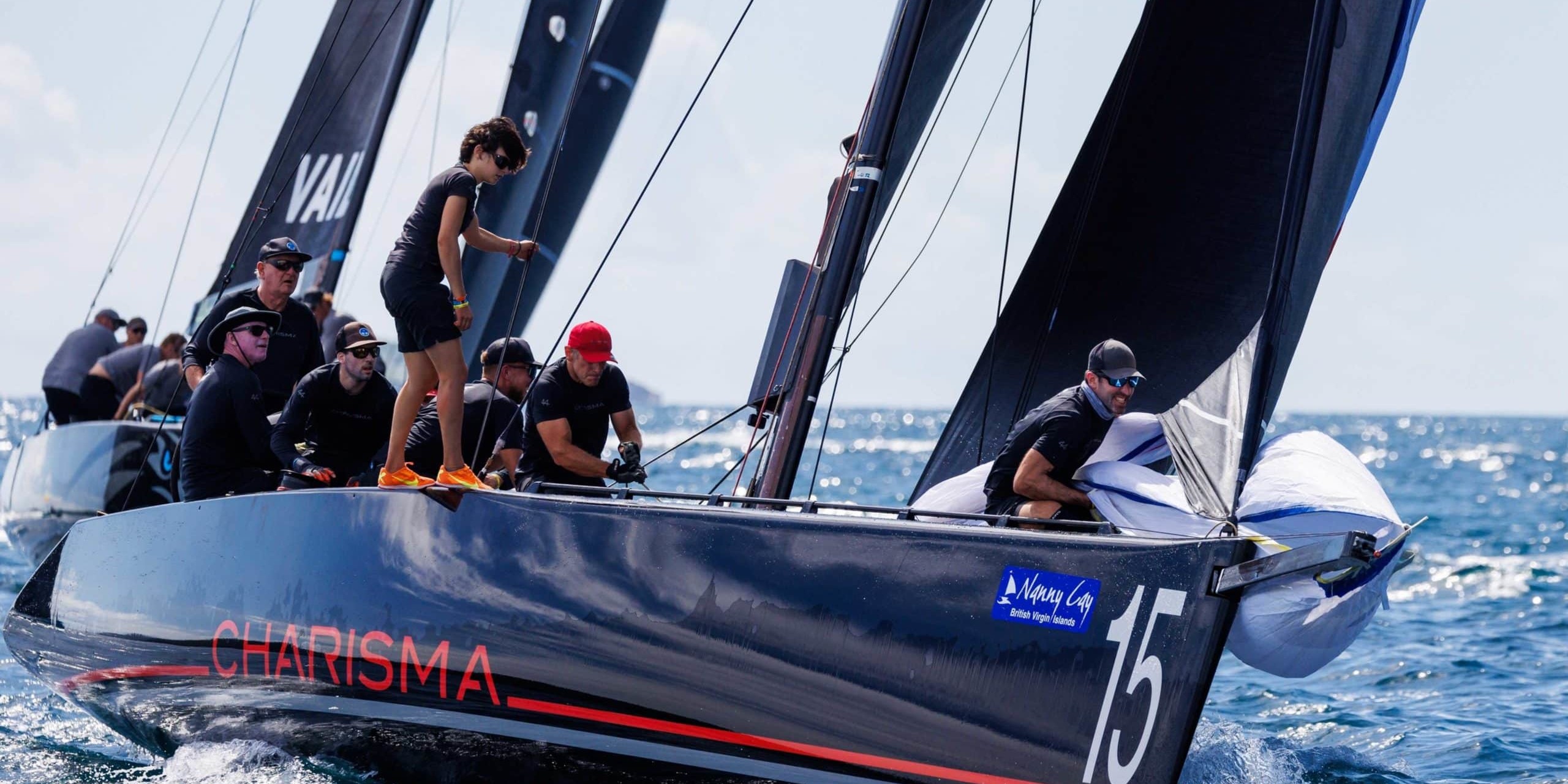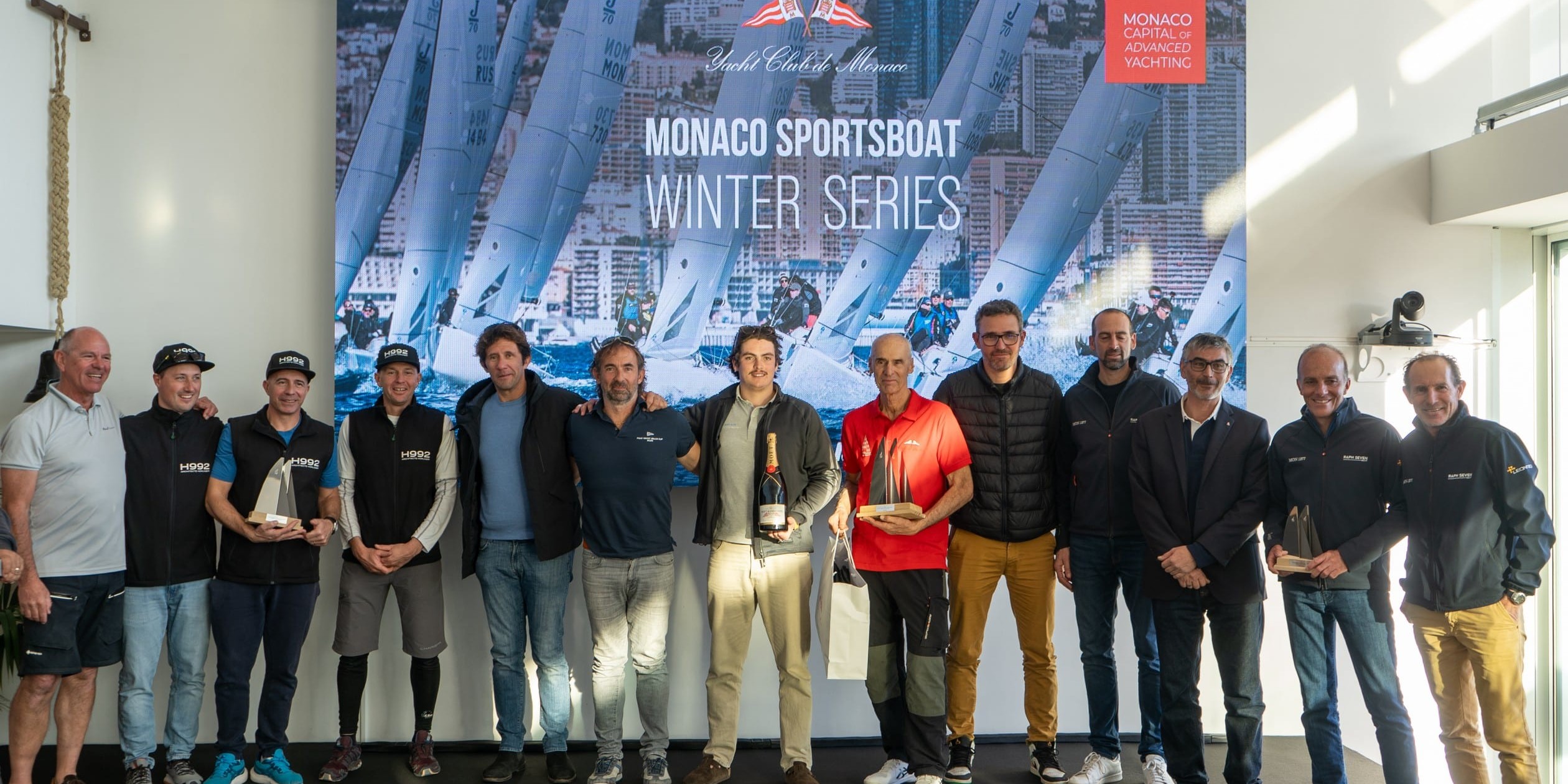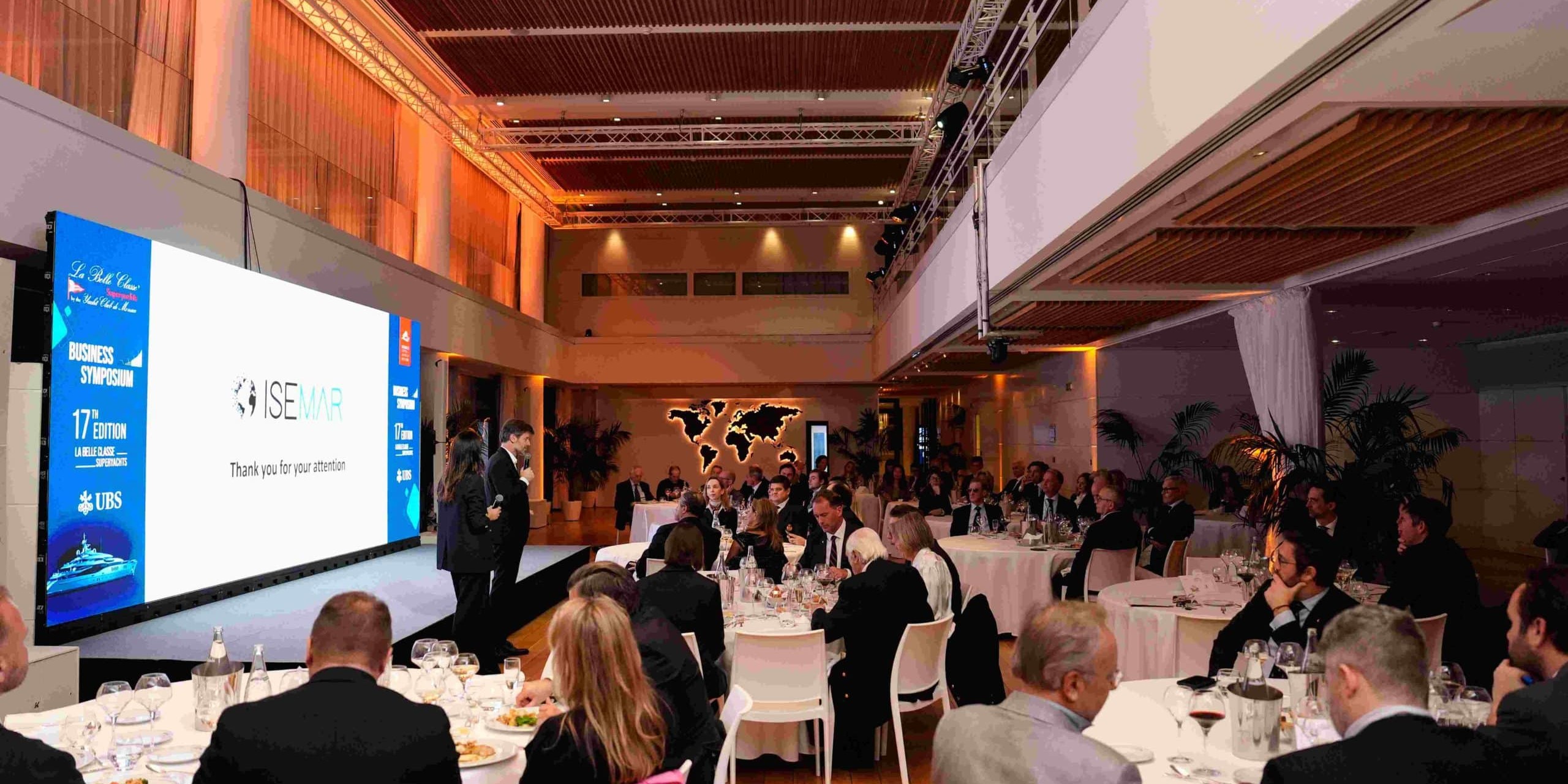10th Monaco Energy Boat Challenge 5-8 July 2023
Friday 7th July 2023. The 4th Monaco Hydrogen Group Round Table took place on Friday 7th July during the Monaco Energy Boat Challenge, supported by the Prince Albert II of Monaco Foundation and Energy Transition Mission. The entire ecosystem – from public authorities and classification bodies to generator developers and engine manufacturers, naval architects and shipyards – came together with one objective to ensure hydrogen plays its rightful role in decarbonising the marine sector, whatever the solutions adopted, which are many!
The first session took stock of the recent evolution of a “hydrogen society”, production and distribution infrastructure development, the numerous applied projects that have been launched, and hydrogen’s future potential in the energy market. Anne-Marie Perez, director of Capénergies competitiveness cluster for the South of France, highlighted a growth spurt in its implementation thanks to the combined actions of public authorities and private companies, large and small, and research not just in France but everywhere in Europe.
CEA’s Paul Lucchese, who is also Chair of the International Energy Agency’s Hydrogen TCP (Technology Collaboration Programme) explained how the potential market for hydrogen in the marine sector should progress different options for usage together. Be it transforming ammonia or methanol, direct use via fuel cells or adapting internal combustion engines, all could prove relevant by addressing different market segments, provided each has reached a satisfactory level of technological and commercial maturity, which is not the case for all of them.
Martin Camus, Marine Hydrogen Project Coordinator at LMG Marin confirmed this approach in his presentation on potential technologies; there is no miracle solution that works for all applications. Although low temperature MEP batteries today have demonstrated their durability, efficiency and reliability, work being done on high temperature fuel cells and solid oxide fuel cells (SOFCs) could in the long term broaden the applications spectrum for even better efficiency or greater flexibility in the hydrogen “fuels” used – its purity being a key point today.
On the side of manufacturers of electric-hydrogen generators for boats, the choice has been made although nothing is set in stone. Thomas Grosjean, fuel cell engineer in charge of maritime and waterway development at Hélion (Alstom), Christian Vinther, manager of the marine division at Ballard, Jérémie Lagarrigue, CEO of EODev and Jules Billiet, CEO of Inocel, are all adopting a similar strategy. Relying on the validity of existing solutions, be they MEB batteries with a polymer or metal membrane, they start with a basic building block and once it has been certified they develop integrated solutions that can be easily incorporated into boats suppling modular power as required to speed up adoption of proven hydrogen technologies.
Many projects are under construction and deliveries are being made when five years ago most were still prototypes on the drawing board. All recognise this revolution will take time, as external constraints are many, particularly regards hydrogen storage, lack of refuelling infrastructure and the slow pace at which regulations are being implemented, non-existent before, while agreeing that things are finally moving forward as certification bodies have now validated their specifications. More projects will come on stream, although the educational component is still key and associated costs remain high.
Engine manufacturers, represented at this round table by heavyweights in the maritime industry such as Volvo Penta and Rolls-Royce MTU, are not just observing the evolution, all are working on this area, particularly the principle of using hydrogen for direct combustion, a solution that offers big potential for boat refits and others.
Following the technical presentation by François Michelet, Business Line Manager at FEV on the challenges, in particular with the supply of oxygen, ignition, injection and reprocessing emissions, Nicola Pomi (heads up the Yachts Division at Volvo Penta) and Dr Daniel Chaterjee (Director Sustainability, Technology Strategy & Regulatory Affairs, Rolls-Royce) showed how the technology was mature, but that its adoption remains dependent on infrastructure and availability of “green” fuels such as bio-methanol, produced from biomass and with limited potential in terms of quantity.
However, this is not preventing the Sanlorenzo yard from justifying its use, coupled with a steam-reformer to produce hydrogen on board. Presented by Paolo Bertetti, Vice-President R&D, they made this choice for a 50m yacht which will be unveiled in September 2024 during the Monaco Yacht Show as, according to him, it is currently the best possible option to address energy density, autonomy, and storage volumes & masses constraints, essential criteria in any vessel’s specifications. Once again, it is clear that the labyrinth of options, as he presented and several other speakers highlighted, forces choices that remain compromises but nevertheless make it possible to move forward on decarbonising the marine sector and the adoption of hydrogen as an essential component.
The final session on the transition from design to confronting the practical reality when integrating hydrogen solutions, broadly echoed the above. While Engel de Boer, Director Yachts Division at Lloyds Register, was very positive about the regulatory aspect and collaborations there could be between class societies and the manufacturers to speed up deployment of hydrogen on boats, other speakers continued to highlight the limitations encountered but also the creativity generated to respond to them.
In this vein, Espen Oeino, naval architect working on a Norwegian ferry project, and Chloé Zaied, Managing Director at Ephyra, both advocated as-localised-as-possible hydrogen production to meet requirements, while regretting the lack of refuelling infrastructure in ports. In his presentation on several working boats under construction, Victor Laravoire, Project Manager at LMG Marin, highlighted how each project was bespoke, the integration of hydrogen being dependent on the technology used and type of hydrogen fuel envisaged. Echoing what manufacturers say, he demonstrated that while the notion of an R&D prototype may now be a bit out-dated, the concept of “tailor-made” and associated costs of solutions remain an obstacle to wider deployment, despite strong public support.
Finally, two projects by two universities participating in the Monaco Energy Boat Challenge had the opportunity to present them to this gathering of professionals. Matthieu Verville for Exocet explained how the Montreal Polytechnic (Canada) had focused its research on improving the transformation of methanol into hydrogen by steam-forming to achieve a lower cost of €2/kilo, 94% reduction in CO2 emissions during the process and an 82% drop in energy consumption. And Simon Dorther explained how the Swiss Solar Boat (EPF Lausanne) tackled development of a flying hydrogen boat, planned for 2025, which is not dissimilar to the one presented by Bluegame at the conference the day before. A fine example of how in developing these future solutions, the industry and academia are indeed at a crossroads and that the Monaco Energy Boat Challenge is one of the best illustrations of this.
More info: www.energyboatchallenge.com
Press contacts: Yacht Club de Monaco
Tel: +377 93 10 64 09 – Email: presse@ycm.org
Dernières publications
16 February 2025
First stage first win for Nico Poons
RC44 - 44Cup Nanny Cay It’s called getting a grip on the season from the start, as demonstrated…
9 February 2025
A 100% Monaco Podium
Monaco Sportsboat Winter Series – Act III 6-9 February 2025 Sunday, 9 February 2025. Act…
7 February 2025
Yachting and geopolitics: Economic challenges and adaptations in a changing world
Each year, the Yacht Club de Monaco brings together key players from the international yachting…



